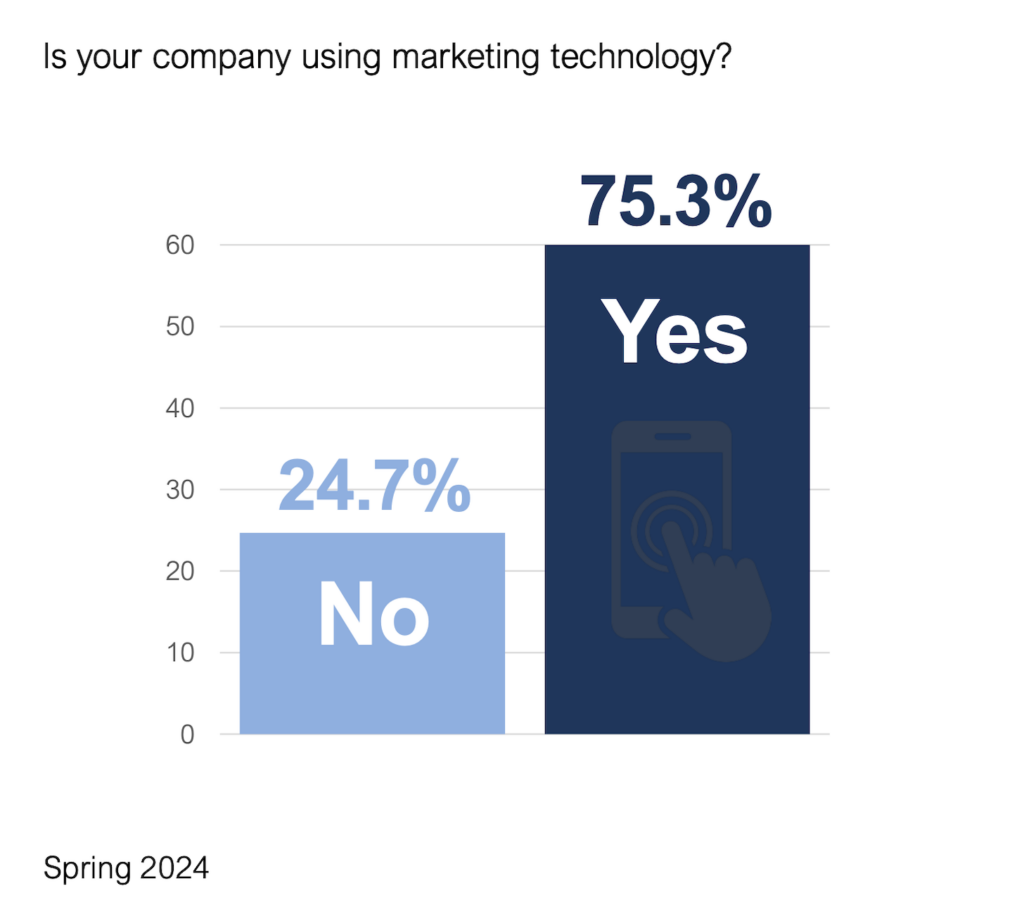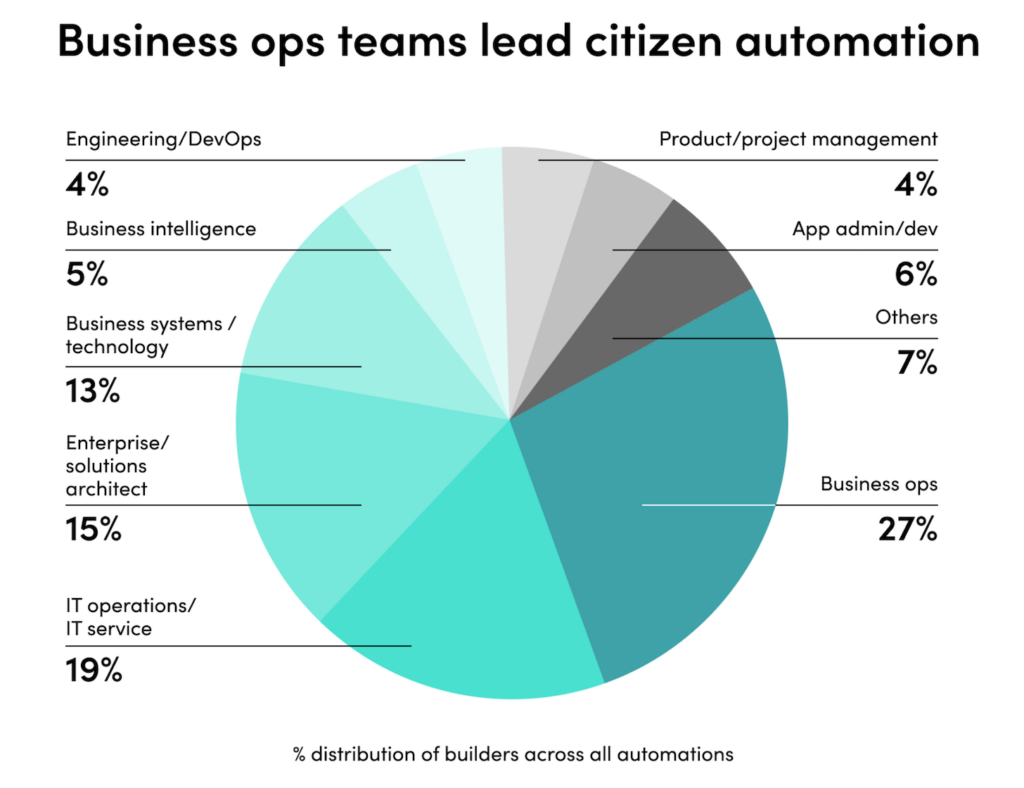
Half of martech and marketing ops professionals received a promotion in the past year.
More accurately, half of the 426 respondents to our 2022 Martech Career Survey, run in collaboration with the team at MarTech.org, reported receiving a promotion within the past 12 months. But still, that’s impressive, and speaks to the incredible growth and demand for talent in this field.
Overall, salaries grew 23% since the last time we surveyed them in 2019. These are good paying jobs:

Super interesting work, at the center of marketing innovation, well-paid and often on a track to fast promotion and career growth? It’s probably no surprise that professionals in this field are generally quite satisfied:
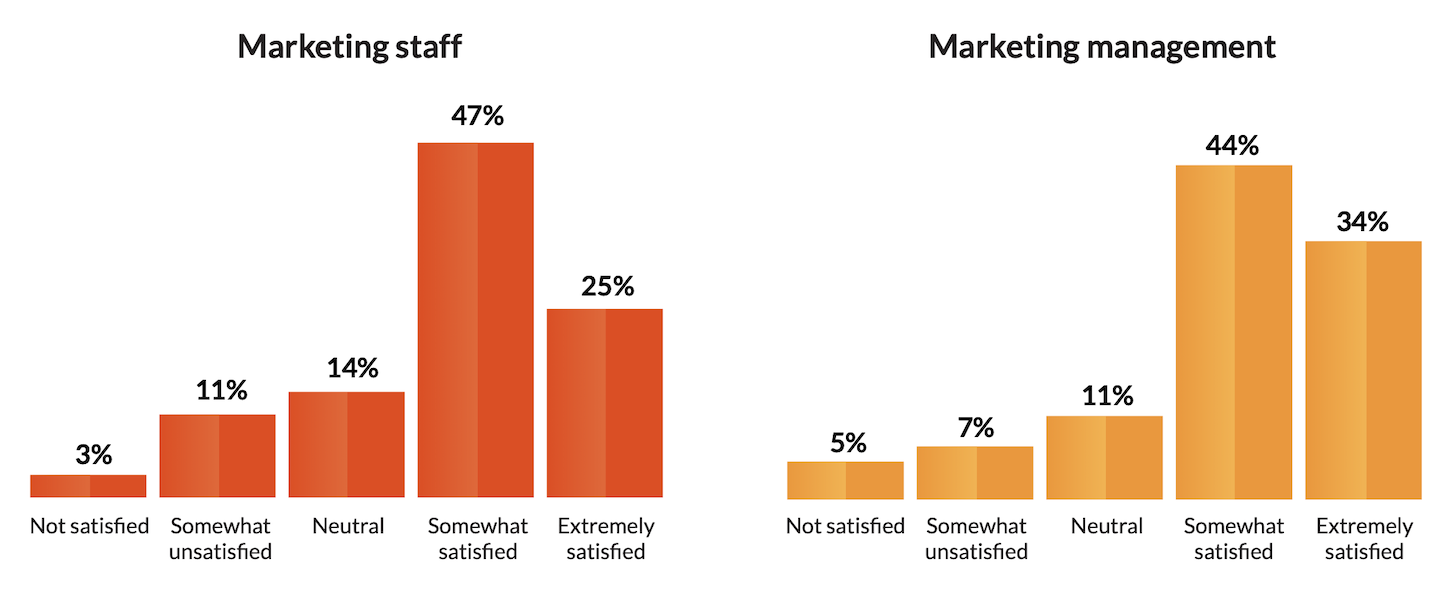
That being said, I’m disappointed to report that we still saw a significant gender pay gap of about 30% between men and women in this survey. And while leadership roles in this space are approaching a more balanced distribution, they still skewed 56% to men and only 42% to women.
Given the incredible demand for martech and marketing ops talent — yet still the relatively tight supply of experienced professionals in the field — it would wise for companies to close this gap. Or, for more enlightened firms, it’s an opportunity to hire great people who may not be properly appreciated in their current positions.
Marketing Ops: “Maestros” Orchestrating Marketing
A couple of years ago, I mapped out four kinds of martech roles in organizations, including martech-savvy marketers (the largest group), marketing operations “maestros”, data and analytics experts (“modelers”), and marketing developers and engineers (“makers”):
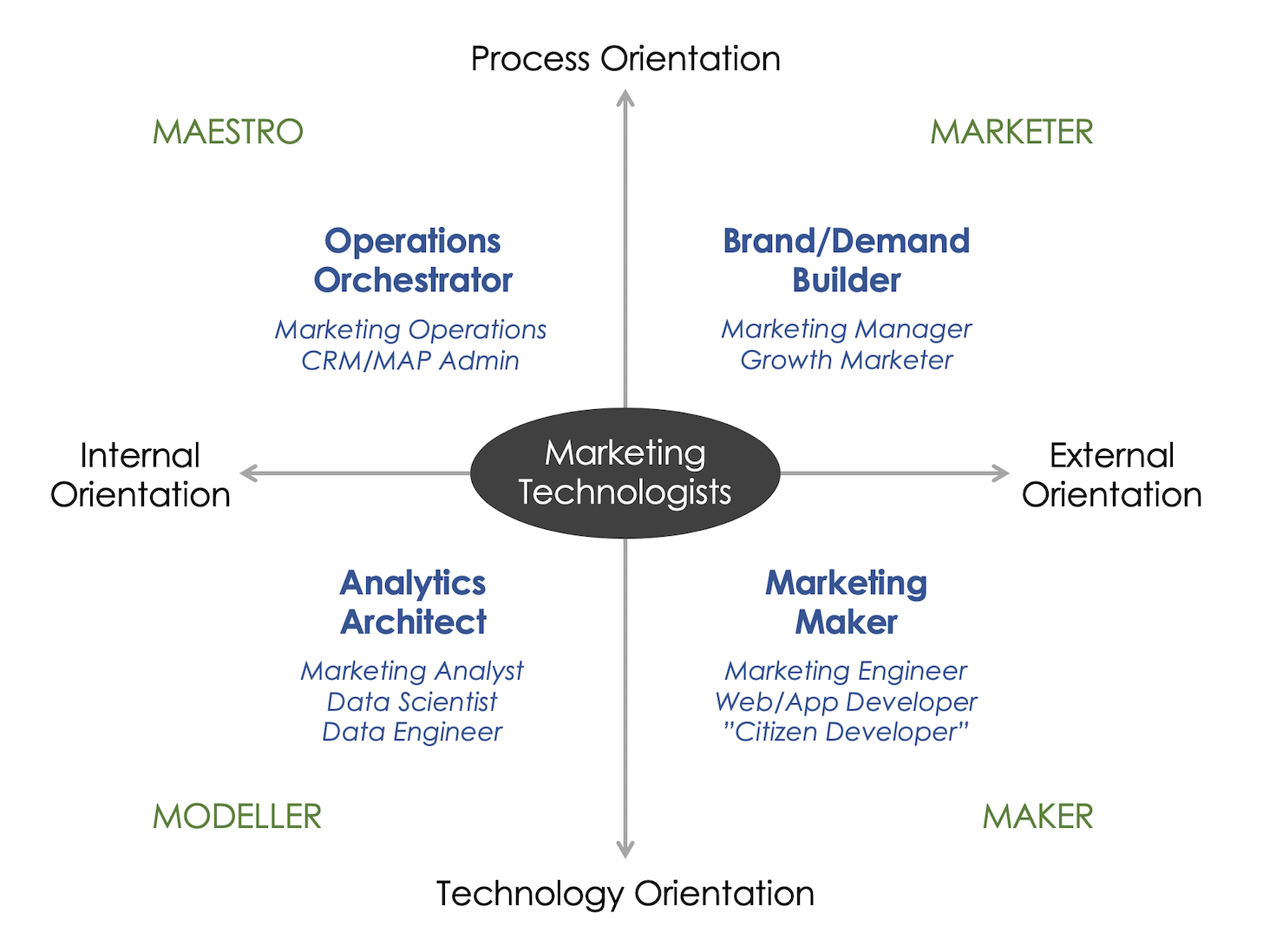
We segmented respondents in our 2020 Martech Career Survey and this year’s study according to this model. Given the nature of our audience and MarTech.org’s, which primarily serve the first two categories, most of the participants identified as marketers (52%) and maestros (35%).
I’m always particularly interested in the set of responsibilities that these marketing ops maestros report as part of their jobs. Here are the answers from that segment this year:

The top six — (1) recommending martech, (2) integrating martech, (3) operating martech, (4) designing workflows and processes, (5) supporting the rest of marketing on martech usage, and (6) architecting the overall marketing stack — have been pretty consistent year-over-year. These six are empirically the “core” of marketing ops work.
This year, however, the percentages are a little lower for many of these responsibilities. Since it was individuals who responded to this survey, and not departments, my hypothesis is that this is a reflection of larger marketing ops teams that distribute these responsibilities among multiple people.
But even if marketing ops increasingly has more resources allocated to it, asking these marketing ops maestros what the top challenges in their roles are shows that they still face difficulty in securing enough time, talent, and money for the mission at hand. It topped the list of their report challenges, followed 9 points further down by the hurdles of working across departmental boundaries, such as with IT or sales:
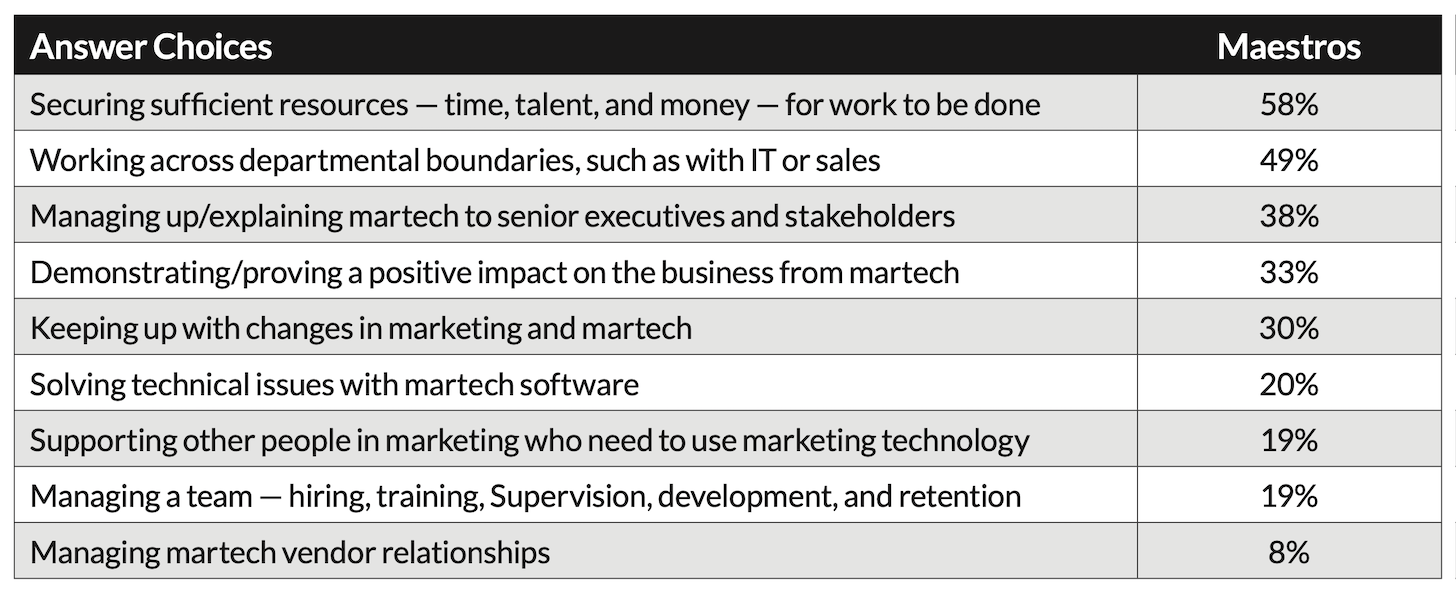
But it’s rewarding work too. An even larger percentage of marketing ops maestros reported that demonstrating a positive impact on the business from martech (61%) and supporting other people in marketing who need to use martech (60%) were two of the best aspects of their job. Here’s the full list of what they found rewarding in their work:
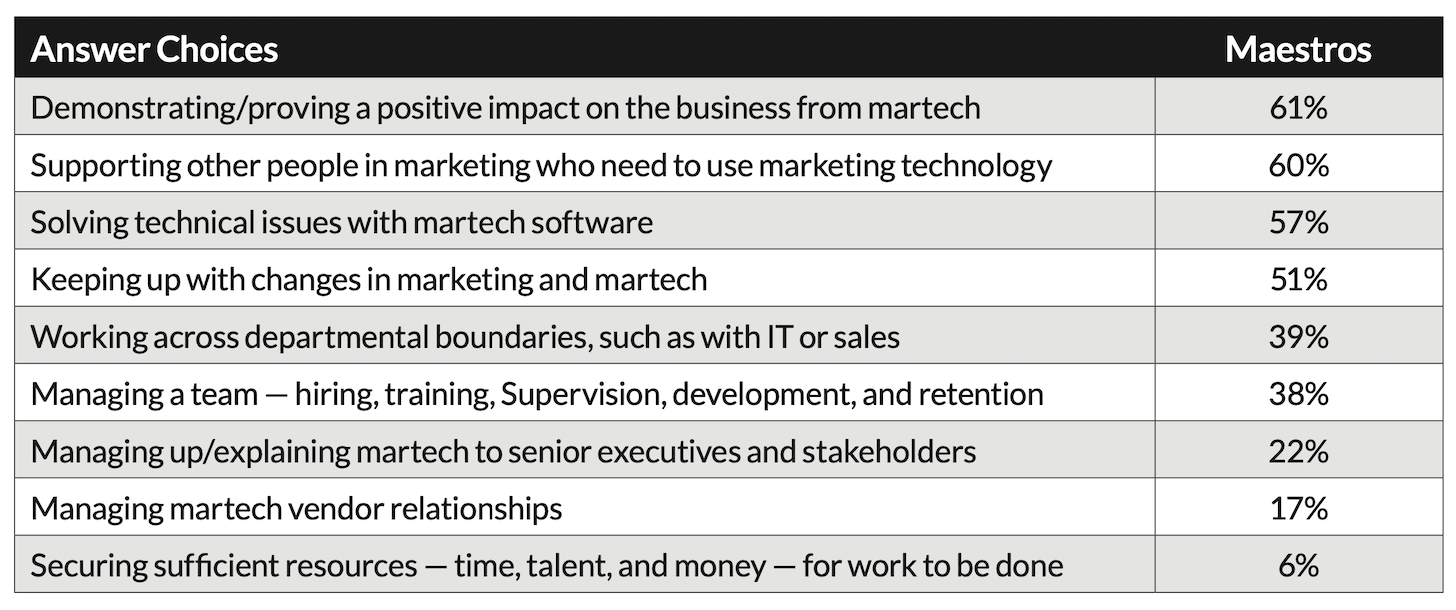
That top answer — providing positive impact on the business — should help dispel the myth that martech professionals are shiny object syndrome seekers who care more about cool tech than profitable returns. In my experience, and reflected in this data set, martech pros take great joy in driving real results. (One more reason to celebrate #MartechDay: marketing ops deserves a big, collective “thank you” at least once a year.)
Not surprising: securing sufficient resources was the least rewarding part of the role.
But it is also a financially rewarding job. Marketing ops maestros, with their specialized skills in orchestrating martech stacks and digital marketing processes, tend to be paid more than marketers — even martech-savvy marketers — 27% more on average:

Spreadsheets: The Reigning Martech App
One more finding I want to highlight is the apps and platforms that marketing ops maestros report using 10+ hours per week:
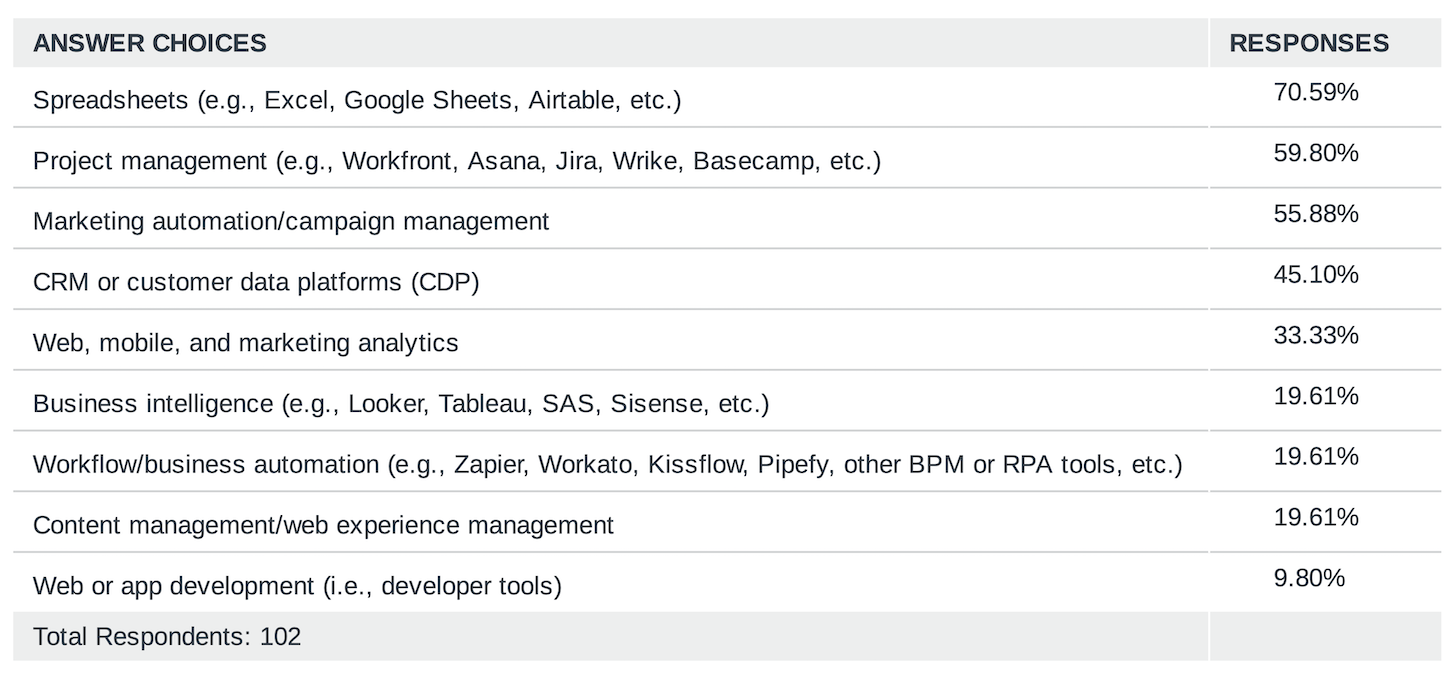
Yes, spreadsheets are the top app used. You know, the software that was popularized in the 1980’s, back when Duran Duran was a thing?
Of course, this almost certainly comes as no surprise to you, dear reader, who probably spend much of your day in Excel, Google Sheets, or one of its next-gen competitors such as Airtable or Smartsheet too. Yet it’s still wild to reflect on how central this technology is to the current operations of most marketing departments.
Quite a lot of data and processes are embodied in these near limitless ledgers.
And that is, I believe, the key to their longevity. Spreadsheets were the original “no code” product that enabled business users to define and manage any kind of (small) data that they wanted, and then use that as a coordinating device for almost any process they wanted to run.
Granted, spreadsheets are typically still quite manual — as are any processes you want to wrap around them. They often lack good governance, and they’re notorious for falling out of date or getting lost in someone’s personal digital junk box. Yet in spite of all those downsides, the freedom to craft what you want, the way you want it, when you want it, remains incredibly compelling.
The new generation of cloud spreadsheets, such as Airtable and Smartsheet, are making progress in solving many of these disadvantages, while also supercharging the capabilities people have to make their “spreadsheets” more like “apps.”
While The Great Unbundling of Excel into more specialized apps continues apace, my bet is that it will be more open-ended, no-code platforms that become its true successor. And marketing ops maestros will be some its greatest champions.
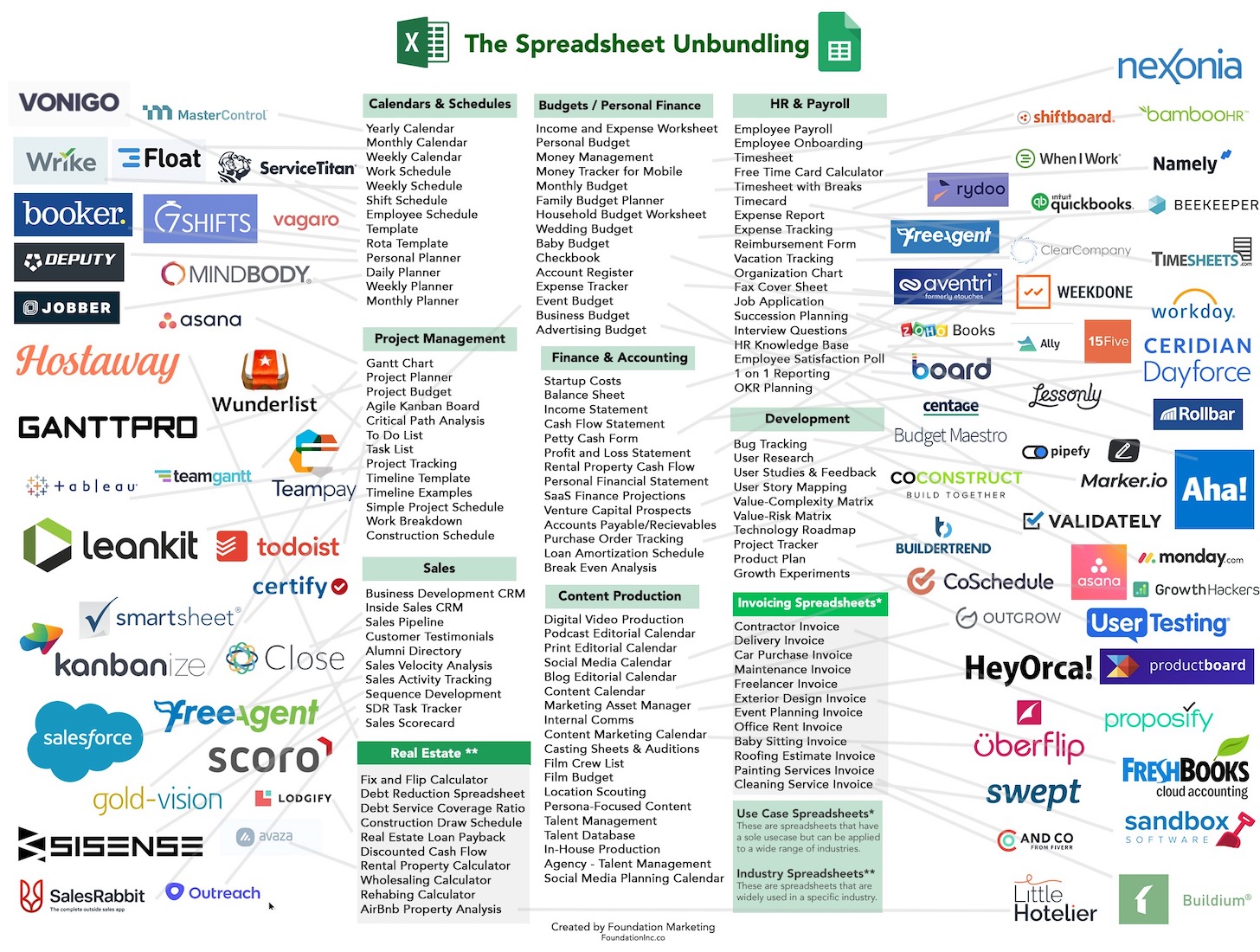
Download a free copy of the complete 2022 Martech Salary and Career Survey here.
